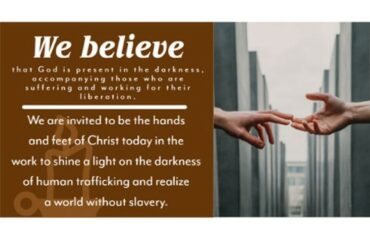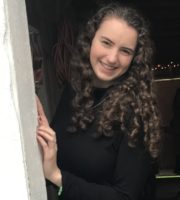
Advocate described anti-trafficking efforts as ‘the new abolition movement’
An organization of religious women working to “eradicate modern-day slavery” raised awareness of human trafficking on college campuses in a recent online event.
On Wednesday, the U.S. Catholic Sisters Against Human Trafficking, or USCSAHT, hosted a webinar via Zoom on how college campuses across the United States face threats from human traffickers.
USCSAHT comprises members of more than 100 Catholic sisters’ congregations as well as like-minded individuals and groups, according to its website. The faith-based network advocates to prevent human trafficking, educates the public and helps survivors access support.
Communications Director Christine Commerce, who led the webinar, introduced The College Fix to the Sisters’ cause in an email last week.
“For some, attending college is a pivotal time that involves meeting new people and testing the waters of independence,” Commerce wrote. “It can also be a time of increased vulnerability. In addition to the disproportionately higher rates of sexual assaults occurring on college campuses, there is also the risk of sex trafficking.”
The Wednesday presentation “focuse[d] on human trafficking with particular attention to what is happening on college campuses across the U.S,” Commerce said.
The webinar featured a panel of “three long-time advocates and scholars,” according to Commerce.
Advocate and political science Professor Tony Talbott of the University of Dayton “is currently teaching one of the nation’s first college courses on human trafficking,” Commerce said in the webinar.
Talbott described anti-trafficking efforts as “the new abolition movement.”
Expert Celia Williamson, a social work professor and executive director of the Human Trafficking and Social Justice Institute at the University of Toledo, detailed how she helped develop a program for local women involved in prostitution.
“I kept running into barriers and so those barriers kept moving me into responding to larger issues,” Williamson said during the webinar. “And then that led me to build an anti-trafficking coalition which led me to work on the legislation…and now it’s twenty years later. I had no idea of the scope and the reach.”
Last to be introduced was Dominique Roe-Sepowitz, associate professor of social work and director of the office of sex trafficking intervention research at Arizona State University.
“The first three weeks of college are one of the most riskiest experiences in a woman’s life,” Roe-Sepowitz said, responding to a question from Commerce about who is most likely to be targeted by traffickers on college campuses.
Roe-Sepowitz added that “sugaring recruiting” occurs on her campus. Those with a “.edu email address” have unique opportunities for abuse because students are more likely to trust them.
Williamson said that it’s the “smart people who are vulnerable,” who are the easiest to “desensitize” to trafficking activities.
“There’s a continuum that happens through manipulation,” she said. “Many people think you’re walking down the street and a van pulls up and snatches you in the van and you are trafficked … it’s more complex [than that],”
Roe-Sepowitz added that romance is often used to manipulate women. “They’re smart enough to see a person’s vulnerability and exploit it for their own use,” she said.
As moderator, Commerce asked the panel about signs of trafficking college students should be aware of and how they should report them.
Talbott emphasized calling the national hotline at 1-888-373-7888 as well as utilizing 911 and campus police.
The webinar concluded with a brief Q&A from the online attendees, who asked about efforts to minimize trafficking, how to volunteer to help those trafficked and the top apps to watch out for from traffickers.
Roe-Sepowitz said that apps such as Discord, SnapChat, and Tinder are all highly used by human traffickers.
Talbott spoke about how her University of Dayton student community boasts several student-led clubs and organizations to raise awareness to other students. Peer-to-peer accountability is more effective than adult speakers, she said.
The USCSAHT will host its annual conference September 28 through the 30 of this year in Illinois titled “Breaking Barriers to End Human Trafficking,” Commerce said. The event will mark the organization’s 10-year anniversary.
MORE: Here’s how colleges can fight sex trafficking and porn
IMAGE: Congregation of the Sisters of St. Joseph of Peace





Please join the conversation about our stories on Facebook, Twitter, Instagram, Reddit, MeWe, Rumble, Gab, Minds and Gettr.